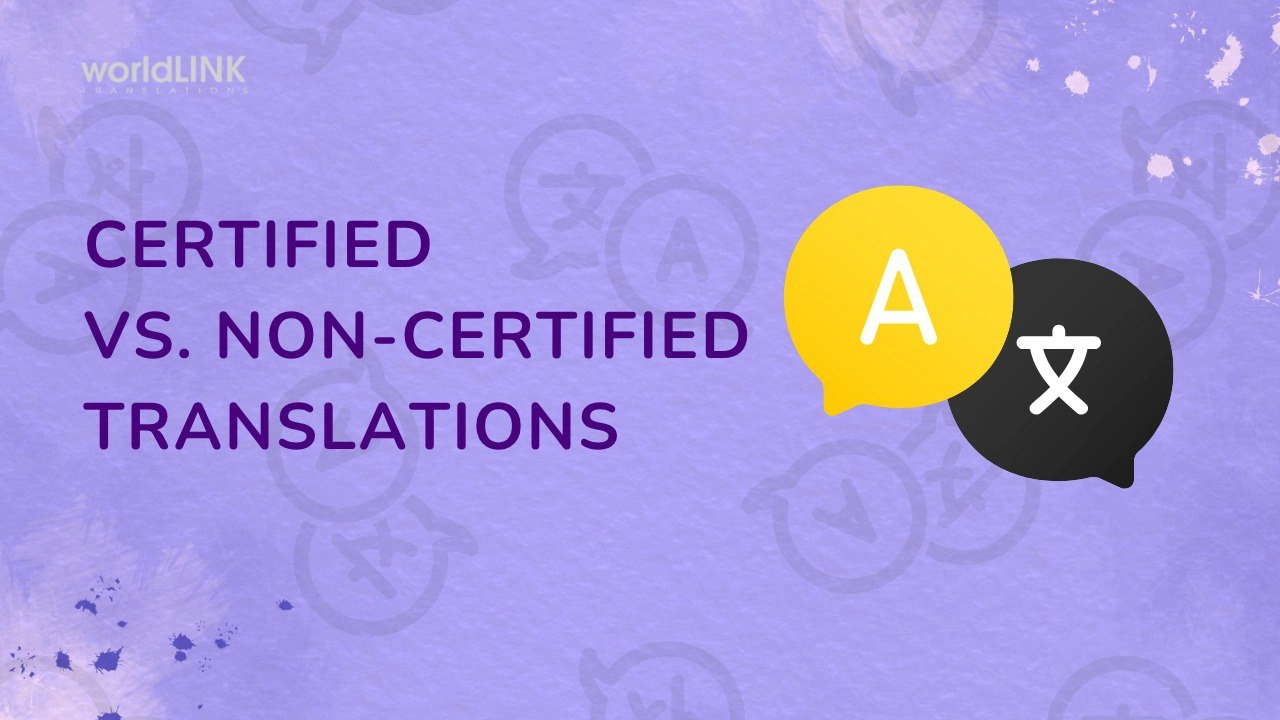Whether you’re submitting immigration documents, applying for college, or handling legal paperwork, understanding the difference between certified and non-certified translations is essential, especially in a regulated state like Massachusetts.
This guide breaks down the differences, explains when certification is required by law, and helps you choose the right translation service for your needs.
What Is a Certified Translation?
A certified translation is a translated document accompanied by a signed statement from the translator or translation agency, affirming the translation is complete and accurate to the best of their knowledge.
Certified Translations Typically Include:
- A copy of the original document
- The translated version
- A signed certification statement with the translator’s contact information and qualifications
Certified translations are often required for:
- Immigration documents (USCIS)
- Court filings
- Vital records (birth, marriage, death certificates)
- Academic transcripts
- Legal contracts and agreements
In Massachusetts, these documents must meet strict accuracy and format standards to be accepted by state agencies, courts, and educational institutions.
What Is a Non-Certified Translation?
A non-certified translation is a standard translation without any formal attestation or signed declaration of accuracy. These are appropriate for:
- Internal business communications
- Marketing materials
- Emails or informal correspondence
- Documents not being submitted to government entities
While less formal, non-certified translations still require linguistic accuracy, but they are not legally binding and may not be accepted by official institutions.
Legal and Official Requirements in Massachusetts
Massachusetts state agencies, including courts, universities, and municipal offices, frequently require certified translations for foreign-language documents submitted as part of official proceedings.
Examples include:
- Probate courts requiring certified wills and affidavits
- Public schools needing certified transcripts and medical forms
- USCIS immigration filings processed in Boston requiring certified translations with formatting and accuracy standards
Failing to provide a certified translation when one is legally required can result in rejected applications, delayed processes, or legal complications.
Risks of Using Non-Certified Translations When Certification Is Needed
Using a non-certified translation in contexts that require certification can create several problems:
- Rejection by agencies such as USCIS or Massachusetts courts
- Delays in immigration, legal, or academic processes
- Questions of authenticity or tampering, especially in legal disputes
- Resubmission fees or case denials, which can be costly and time-consuming
If you’re unsure whether certification is needed, it’s always safer to work with a translation provider that offers certified translation services in Massachusetts.
How to Choose the Right Translation Service in Massachusetts
When selecting a provider for your certified or non-certified translation needs, consider the following:
Credentials and Expertise
Look for agencies or linguists with ATA certification or verified experience in legal, academic, or government translations.
Massachusetts-Specific Compliance
Ensure the provider understands the formatting and notarization requirements specific to state courts, local institutions, or USCIS standards.
Quality Assurance Process
Reputable agencies have a multi-step quality control process, including proofreading and linguistic review.
Confidentiality and Data Protection
For sensitive documents, confirm the provider adheres to strict privacy protocols and can provide non-disclosure agreements if needed.
Conclusion
In Massachusetts, the difference between certified and non-certified translations is not just technical, it’s legal. Using the correct type of translation ensures your documents are accepted, your processes are smooth, and your legal standing is protected.
Unsure whether your documents require certified translation?
Get clarity and accuracy from trusted professionals. Contact World Link to ensure your translations meet Massachusetts legal and official standards.

